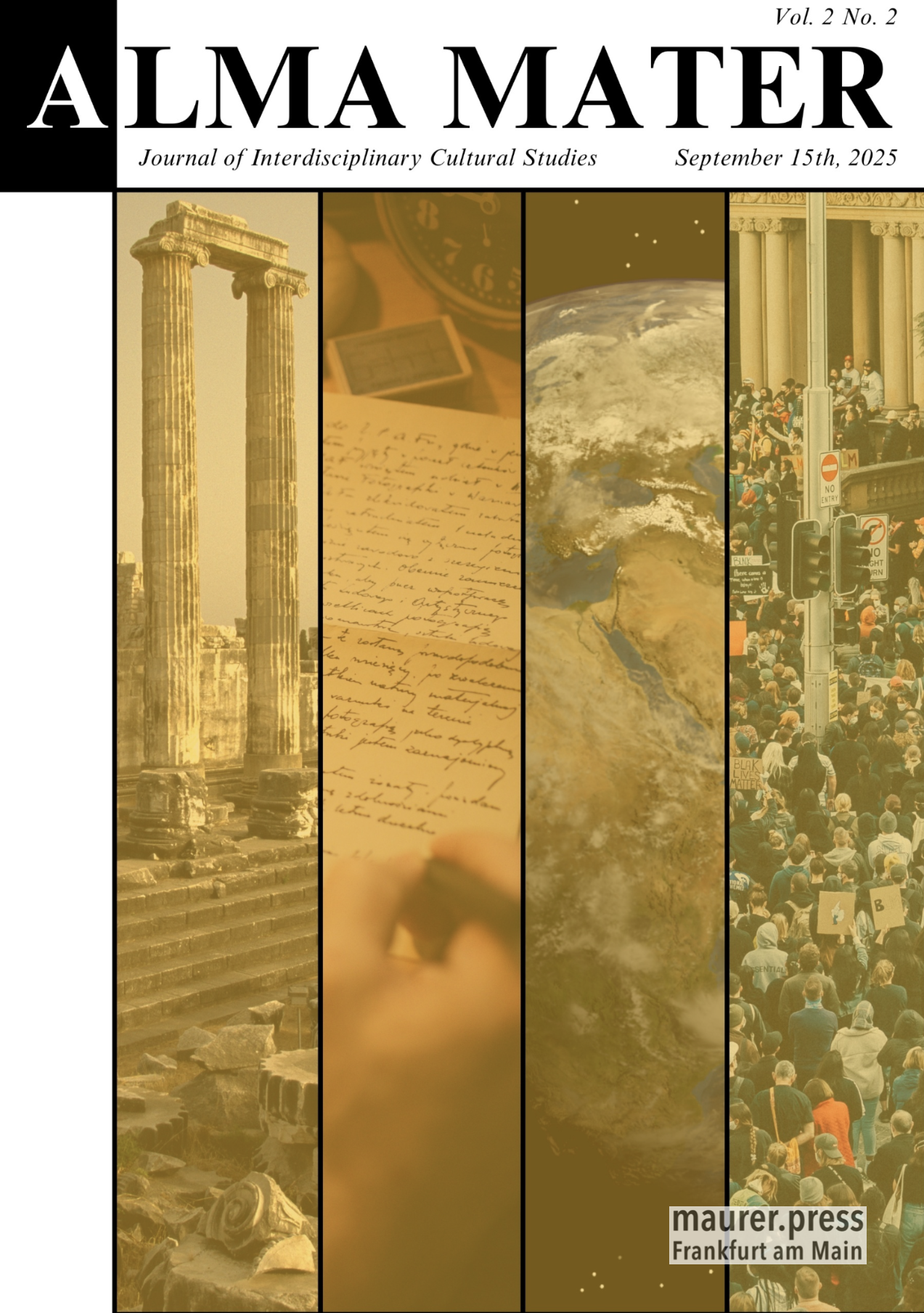| Open Access
Alma Mater – Zeitschrift für interdisziplinäre Kulturforschungen 2025, Bd. 2(2) 348-357
Magical Realism and Colonial Shadows: Cultural Resistance in Joaquin’s The Legend of the Dying Wanton
S. 348 - 357 | DOI: https://doi.org/10.29329/almamater.2025.1349.6
Veröffentlichungsdatum: September 07, 2025 | Einzeln/Gesamtansichten: 23/29 | Einzeln/Gesamtdownloads: 40/30
Zusammenfassung
This paper examines Nick Joaquin’s short story The Legend of the Dying Wanton through the lens of cultural identity, historical recovery, and magical realism. Often misunderstood for its invocation of Spanish Catholic imagery, Joaquin’s narrative instead offers a subtle form of postcolonial resistance by reviving a repressed legend from early seventeenth-century Manila. Building on contemporary interpretations of Stuart Hall’s notion of cultural identity and Homi Bhabha’s concept of the third space, this paper contends that Joaquin’s incorporation of miraculous elements, Gothic motifs, and symbolic relics serves a deeper purpose. Rather than romanticizing the past, these features operate as instruments for recovering cultural memory. Through the characters of Currito Lopez and Doña Ana de Vera, Joaquin portrays the layered complexities of colonial identity, voicelessness, and the burden of unresolved history. The miraculous survival of a dying soldier and the mud-stained robes of the Virgin Mary become mnemonic devices that challenge dominant nationalist and colonial narratives alike. Furthermore, Joaquin’s deliberate silences and focus on spectral presences reflect the historiographic gaps of the colonial archive. By reanimating forgotten myths through magical realism, Joaquin not only retrieves suppressed narratives but redefines Filipino identity as something shaped by entanglement, trauma, and continuous reinterpretation. This paper positions Joaquin’s work as a literary intervention into the politics of memory, offering new ways to understand the intersections of faith, history, and postcolonial resistance.
Schlüsselwörter: Nick Joaquin, Filipino identity, magical realism, postcolonial literature, cultural memory, colonial hybridity
APA 7. Auflage
Valoojerdi, M.H.A. (2025). Magical Realism and Colonial Shadows: Cultural Resistance in Joaquin’s The Legend of the Dying Wanton. Alma Mater – Zeitschrift für interdisziplinäre Kulturforschungen, 2(2), 348-357. https://doi.org/10.29329/almamater.2025.1349.6
Harvard
Valoojerdi, M. (2025). Magical Realism and Colonial Shadows: Cultural Resistance in Joaquin’s The Legend of the Dying Wanton. Alma Mater – Zeitschrift für interdisziplinäre Kulturforschungen, 2(2), pp. 348-357.
Chicago 16. Auflage
Valoojerdi, Mohammad Hossein Abedi (2025). "Magical Realism and Colonial Shadows: Cultural Resistance in Joaquin’s The Legend of the Dying Wanton". Alma Mater – Zeitschrift für interdisziplinäre Kulturforschungen 2 (2):348-357. https://doi.org/10.29329/almamater.2025.1349.6
